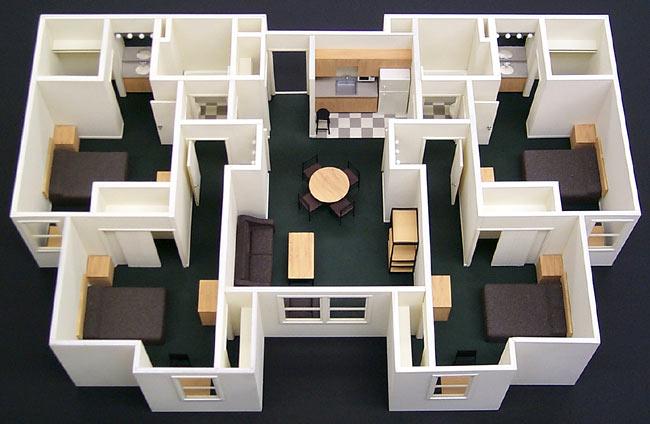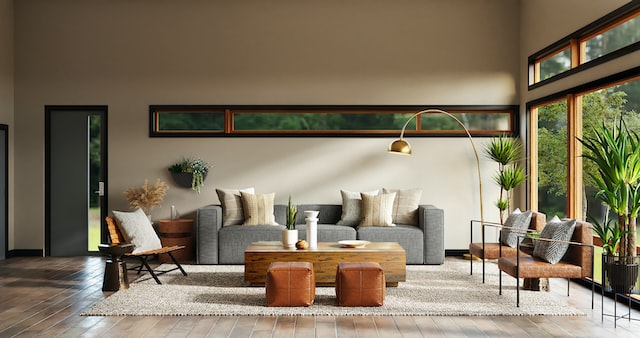Work with a Premium Home Designer to Build a Timeless Masterpiece
Work with a Premium Home Designer to Build a Timeless Masterpiece
Blog Article
Making The Most Of Aesthetic Allure: The Synergy In Between Interior Design and Home Architect Strategies
Comprehending the subtle interaction between interior decoration and home design can significantly elevate the visual allure of a living room. This marriage of style techniques includes a thoughtful integration of building aspects with indoor designs, and a skillful application of concepts such as balance, rhythm, and contrast. As we explore this harmony, we will uncover means to develop practical and visually striking settings that not only reflect individual design, yet additionally adapt to the dynamic needs of contemporary living.
Recognizing the Fundamentals: Defining Interior Design and Home Design
Interior layout and home style, commonly intertwined, stand for the architectural and visual aspects of our living rooms. Inside design is a complex self-control that involves developing practical, safe, and cosmetically pleasing areas inside a building. On the various other hand, home architecture largely concentrates on the solid framework of a building.
The Harmony Discussed: Just How Interior Layout and Home Design Intersect
Understanding the synergy in between interior decoration and home design can open a world of imagination and performance. When discussing this junction, the influence of architecture on insides is an important element to consider. This conversation will certainly focus on the unifying style concepts that blend these two fields right into an unified whole
Unifying Design Concepts
While it might seem that interior decoration and home architecture are 2 unique disciplines, they are really deeply interconnected, creating a synergy that is necessary for developing harmonious living areas. Unifying style concepts are the columns that facilitate this symbiosis. The principles include equilibrium, rhythm, emphasis, harmony, and contrast. These aspects integrate to give a natural visual allure. Balance creates a sense of stability, rhythm offers a sense of movement, harmony guarantees unity, contrast sparks interest, and focus attracts attention to key elements. The strategic application of these concepts makes it possible for a smooth mix of visual appeals and function, enhancing the overall experience of the room. Fundamentally, these concepts function as the bridge, unifying interior design and building methods.
Building Influence on Insides
When one considers the building impact on insides,The intertwining of interior style and architecture comes to be even more evident. Architectural components are intrinsic to an area's functionality and aesthetics, forming the design from the beginning. Columns, arches, light beams or staircases, for example, offer both attractive and architectural functions. They can split rooms, develop focal factors or imbue an area with a particular ambiance. Factor to consider of percentage, light, and texture likewise originate from architectural influences. Eventually, design mold and mildews the canvas whereupon indoor developers function. Their synergy is thus undeniable: design establishes the structure, which interior decoration boosts with texture, design, and color. This cooperative partnership makes certain a harmonious balance between function and charm, enhancing the aesthetic appeal of any space.
Secret Concepts in Balancing Interior Design and Home Design
Striking a balance in between functionality and appearance is an essential aspect of integrating interior layout and home architecture. A just as important concept is the integration of sustainable layout to create energy-efficient and environment-friendly homes. Understanding and discovering various architectural designs can additionally play a vital function in attaining an unified design. Luxury home architect.

Balancing Capability and Aesthetic Appeal
Stabilizing performance and visual appeals in interior layout and home design emerges as one of the vital principles to consider. Aesthetics boosts the mood and affects the assumption of area, whereas functionality makes certain functionality and comfort. Just as crucial is the efficient setup of the area, with a tactical design adding substantially to the synergy in between functionality and appearances.
Sustainable Layout Combination
In keeping the balance in between functionality and appearances, one should additionally think about the integration of sustainable layout principles. This technique not just enhances the aesthetic allure of a space however additionally ensures its durability and reduced environmental effect. The key lies in selecting products that are environmentally more friendly, sturdy, and appealing. This includes natural, recycled, or low-impact materials that add to a healthier and a lot more lasting globe. Developers and designers can likewise incorporate energy-efficient systems, such as energy-saving devices or solar panels. Furthermore, making sure good indoor air high quality with enough all-natural lights and ventilation is crucial. For that reason, a harmonious combination of interior style and home design, directed by sustainability, can produce spaces that are stunning, practical, and ecologically friendly.
Exploring Architectural Designs
While there are a variety of architectural designs to explore, it is vital to comprehend that every one brings its unique principles that can significantly influence the harmonization of indoor design and home style. These styles, ranging from the luxuriant Baroque to the minimalist Modernist, bring distinctive viewpoints and visual appeals that, when appropriately understood and used, can develop homes that are not only visually magnificent but her response likewise sympathetically incorporated in terms of layout and architecture. Choosing a building design is not merely about personal visual choice; it is about selecting a layout language that speaks with the property owner's way of life, ideology, and aspirations, creating a home that is a true reflection of its citizens.
Instance Researches: Exceptional Examples of Design and Architecture Synergy
Looking into some outstanding study gives a profound understanding of exactly how style and design can harmoniously merge to develop engaging and practical spaces. The legendary Fallingwater house, developed by Frank Lloyd Wright, exceptionally demonstrates this synergy. Wright's style masterfully integrates the residence with its bordering landscape, while the indoor mirrors the outside's natural types. One more example is the minimalistic Tadao Ando's Church of Light in Japan. The architect attained an excellent equilibrium between simplicity and drama, using raw concrete and light. Inside, the raw, very little style creates a feeling of peace and spiritual consideration. These examples illustrate the relevance of harmony in between interior design and style in accomplishing aesthetic and useful success.
Practical Tips: Enhancing Your Home's Aesthetic Appeal
Attracting inspiration from the study of architectural and style harmony, house owners also can execute some sensible techniques to increase their home's aesthetic appeal. An unified mix of colors, appearances, and illumination can boost an area, creating a cozy and inviting atmosphere. Selecting furniture that enhances the go architectural elements of your house can cultivate a sense of unity. Wall art and design items can include personality, mirroring personal style and taste. Integrating plant, either with interior plants or sights to the outdoors, can bring a component of nature, delivering a calming effect. Smart use mirrors can open a room, offering an impression of a bigger location. Inevitably, the visual allure depends on stabilizing capability with layout, developing a home that is both livable and gorgeous.

Future Fads: How Modern Techniques Are Changing Interior Design and Architecture
As the globe evolves, so do the trends in indoor layout and style. Modern methods are progressively concentrating on sustainability, including environmentally friendly materials and energy-efficient styles. These patterns mirror a change in the direction of designs that are not just visually pleasing, however likewise eco aware, highly progressed, and adaptable to changing lifestyles.
Conclusion
Finally, the combination of interior decoration and home design techniques is a vibrant technique to enhancing visual charm. By leveraging key concepts like contrast, equilibrium, and rhythm, and incorporating components of modern living, developers can create functional, visually pleasing atmospheres. Through comprehending this synergy, house owners can make informed choices that not just raise their home however additionally add to their total well-being.
Comprehending the subtle interaction in between interior style and home style can substantially elevate the visual appeal of a living room.Interior style and home style, commonly intertwined, stand for the architectural and aesthetic elements of our living rooms.While it might seem that interior style and home architecture are two unique techniques, they are in fact deeply interconnected, forming a harmony that is necessary for developing harmonious living areas.The intertwining of indoor design and architecture comes to be even much more evident when one considers the architectural influence on interiors. A harmonious combination of interior style and home design, led by sustainability, can develop rooms that are gorgeous, functional, and ecologically friendly.
Report this page